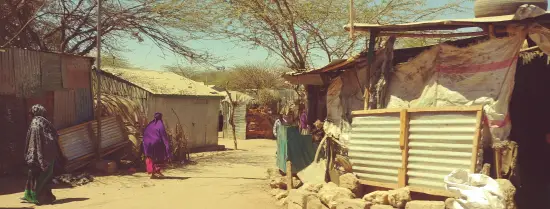FACTSHEET
Themes | Complex Land Markets; Urban Planning Strategies |
Client | Department For International Development (DFID) |
Counterpart Organisations | IPE Triple Line; Development Planning Unit, University College London; National experts in Uganda and Somaliland |
Duration | 2017 - 2019 |
Countries | Uganda and Somaliland |
IHS Contact |
Complex Land Markets
Emergent, uncontrolled land markets frequently support rapid, unplanned expansion in which substantial slum areas are typified by scarcity of urban services, which in turn impacts on economic productivity and human development. Research has focused variously on the impact of formal and informal institutions on those processes, but little research has focused on how those institutions interact and overlap. The dynamic and rapid nature of urbanization in East African cities, coupled with a scarcity of planning resources, limits the value of formal institutions in steering urban change and expansion, thus highlighting the importance of a holistic understanding of both formal and informal institutions. These interrelated institutional arrangements are understood as ‘complex land markets’ (CLM). Our focus on land markets and their impacts underpins the essential concept of the research being about the City as a System.
About the project
“Spatial Inequality in Times of Urban Transition” is a research project investigating urban transition in Kampala and Arua in Uganda and Hargeisa and Berbera in Somaliland. The project seeks to understand the dynamics of urbanisation in East African cities on their own terms, rather than employing the perspectives of ‘western’ urban planning.
Objectives of the research:
- Understand and explain the complex land markets in each of the selected cities, looking at all formal and informal actors;
- Provide policy recommendations with regard to land governance and equitable and sustainable urban development; and
- Develop a spatial justice index as a policy tool for intra- and intercountry comparison.
“Spatial Inequality in Times of Urban Transition” is funded by the East Africa Research Fund (EARF), which is a funding facility of the Department for International Development (DFID). This two year project is implemented in collaboration with IPE Triple Line and Development Planning Unit, located in London and with nation experts in Uganda and Somaliland. The consortium aims to deliver innovative findings and practical recommendations to overcome the constraints of development in different sectors, especially those related to spatial development. Examples of output that will be developed by the end of the project include city level spatial assessments,
IHS’ Role
IHS is the Principal Investigator of the two-year project, working with the co-investigators and in country coordinating experts. Responsibilities for the project also include:
- Organisation of local contracts, work plan and inception of project
- Co-ordination of inception workshops and report
- Development and management of Household Surveys in all four cities
- Development of the core outcomes of the assessment including in-city analyses, a Spatial Justice Index and policy recommendations for political and administrative practices.
